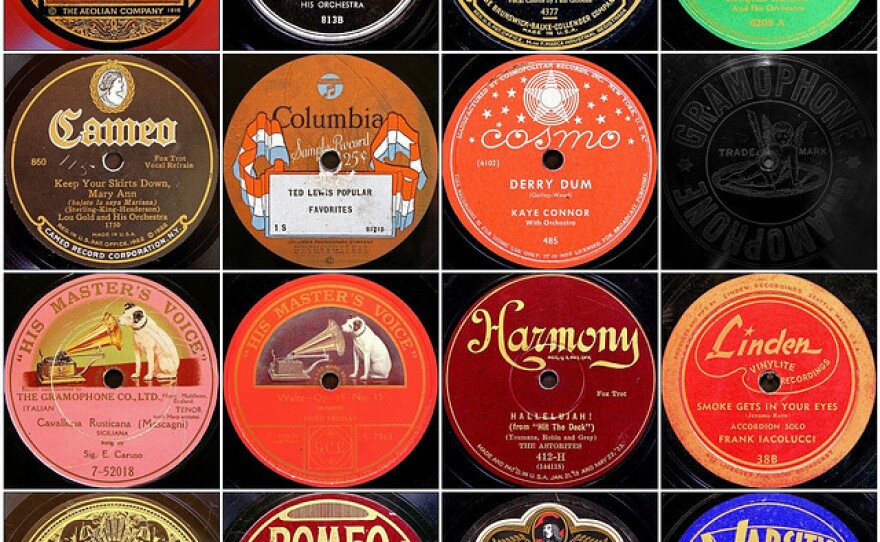Before Nashville became the country music capital of the country, Charlotte was a major center for early country and blues artists to record. Record companies looking for new sounds outside the big cities of the north came to Charlotte several times between the late '20s and '40s in search of “hillbilly” and “race” music as it was called back then.
Levine Museum of the New South historian Tom Hanchett is the go-to expert on Charlotte’s history as a music town. “Charlotte is a city that has not paid a lot of attention to its history and this country music history is part that’s gotten lost,” Hanchett says.
It’s a subject he stumbled upon by accident. After he moved here in the early '80s, someone asked him: “Did you know Bill Monroe recorded here? Bill Monroe, the “Father of Bluegrass,” recorded here? Yeah, he made all of his first records here.’”
For Hanchett, a life-long folk fan, it was a big deal.
“It opened a door,” Hanchett says. “And as the door opened more and more, I discovered that Charlotte in the ‘30s had been more important than Nashville as a country music recording center.”
Charlotte had fewer than a 100,000 people in the '20s. But the population was growing as people came to work in the booming textile industry. Those textile workers had something Hanchett says farmers in the South never had: money every Saturday night.
“Cause you got paid on Saturday,” Hanchett says.
With an audience that could pay and the ability to be heard for hundreds of miles on WBT radio, Charlotte became a major stop for bands touring the Southern Piedmont. And hot on their heels were the record companies. Back then they would do field recordings: engineers would set up portable recording gear in the corner of a warehouse or a hotel room. Nathan Salsburg is a music archivist and curator with the Association for Cultural Equity.
“They would basically setup for a week or week-and-a-half and sometimes put flyers in the local paper to send out word, ‘come audition for Victor Records,” Salsburg says. “And this flushed out as we know now a lot of the seminal artists of the day.”
The most famous of these field recordings was done in Bristol, Tennessee in 1927 by the Victor Talking Machine Company. That session marked the recording debuts of the legendary Carter Family and Jimmie Rodgers. That’s why today Bristol is considered the "Birthplace of Country Music." A few days later, Victor set the first recording session in Charlotte. Victor didn’t find any stars this time, but they did come later on. The Carter Family came in 1931. Bill Monroe made the first commercial recordings of his career in Charlotte in ‘36. Early country star Uncle Dave Macon came in ’37 and ’38. And many others came through, too. You may not have heard of them, but they were notable at the time: Zeke and Wiley Morris, the Tennessee Ramblers, and the Golden Gate Quartet to name just a few.
Things began to slow in the '40s, though. Musicians began to set their sites on Nashville instead because it had something Charlotte didn’t have: a radio show that could be heard across the country, the Grand Ole Opry. The record companies followed, and that’s where the permanent recording studios were set up. And Hanchett says Charlotte didn’t try to fight it.
“ Charlotte was kind of ashamed,” Hanchett says. “This was mill worker music. We wanted to be an uptown kind of place. I wonder what would’ve happened if we had held onto that recording music.”
Maybe Charlotte could’ve become Nashville. Imagine the streets of Uptown lined with honky-tonks instead of banks. In 1985, organizers culled together some of the remaining musicians of the era who’d recorded in Charlotte and brought them to Spirit Square for two days of concerts. It was called “The Charlotte Country Music Story.” Today, there’s little to remind residents of this chapter in Charlotte’s history, save for a marker on South Tryon where the building RCA Victor used for field recordings used to stand. And the music itself, most of which is still in print.



